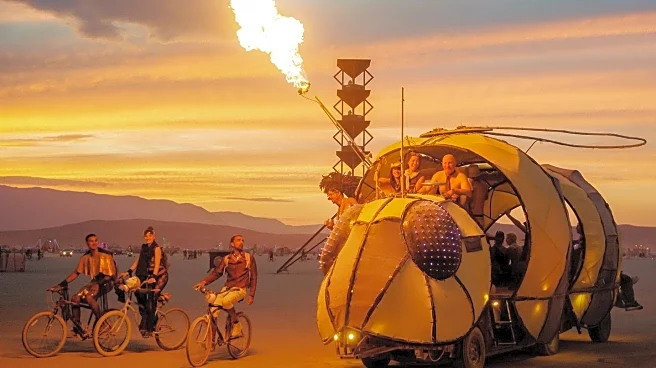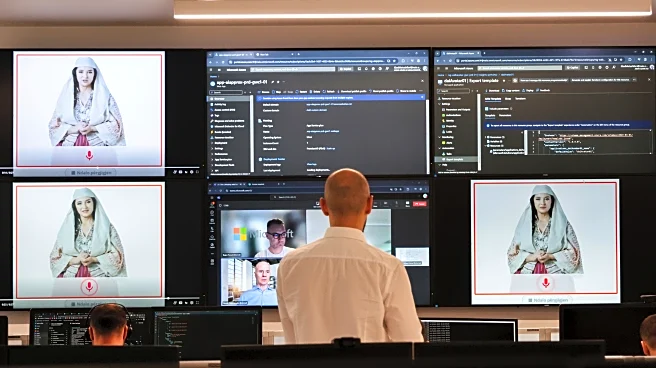What's Happening?
Burning Man, an annual event held in Nevada's Black Rock Desert, began in 1986 when founders Larry Harvey and Jerry James burned a wooden effigy on San Francisco's Baker Beach. The event has since evolved into a large-scale gathering that emphasizes self-expression,
community, and the rejection of corporatism. Participants, known as 'Burners,' create a temporary city where they engage in art, barter, and communal living. The event is guided by ten principles, including radical inclusion and leaving no trace, which shape the unique culture of Burning Man.
Why It's Important?
Burning Man is a significant cultural event that challenges traditional societal norms and promotes alternative ways of living and interacting. It has a profound impact on the arts and culture sector, encouraging creativity and collaboration among participants. The event also serves as a testing ground for new social and economic models, such as gift economies and communal living, which can influence broader societal trends. Burning Man's emphasis on sustainability and environmental responsibility highlights the importance of considering ecological impacts in large-scale events.
What's Next?
As Burning Man continues to grow, organizers face the challenge of maintaining its core values while accommodating increasing numbers of participants. Future events will likely focus on enhancing sustainability practices and addressing environmental concerns. The event's influence is expected to expand, inspiring similar gatherings worldwide and contributing to ongoing discussions about community, creativity, and sustainability.
Beyond the Headlines
Burning Man's principles and practices have inspired various sectors, including technology and business, particularly in Silicon Valley. The event's emphasis on innovation and community-driven solutions resonates with entrepreneurs and creatives seeking to push boundaries and explore new possibilities. As a result, Burning Man has become a symbol of cultural and social experimentation, with potential long-term impacts on how communities and organizations operate.















